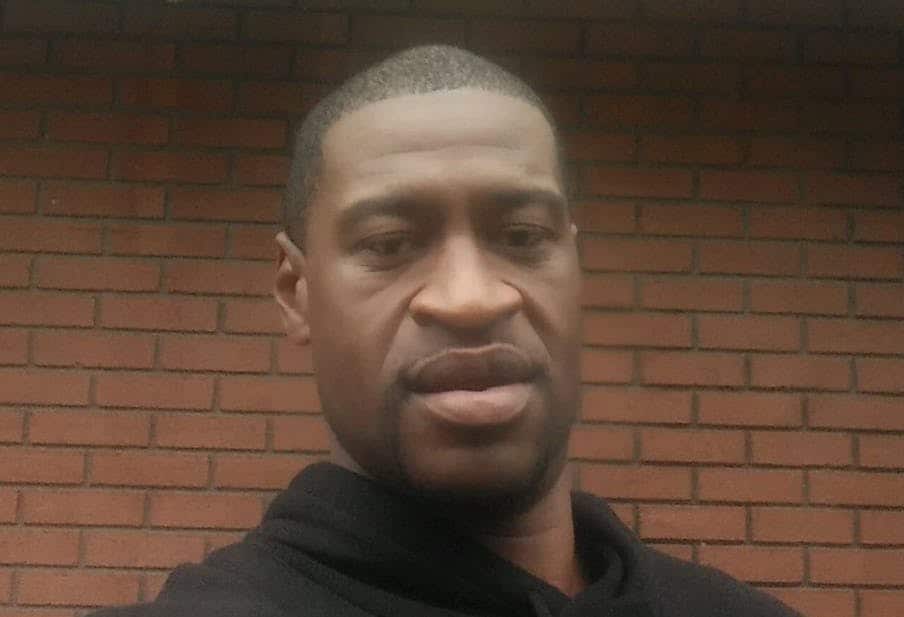“The only thing necessary for the triumph of evil is for good men to do nothing.”—Edmund Burke
It has happened again. Another unarmed black man killed by a group of mostly white police officers. And yet again, this man’s death was recorded. The bystanders recording were voicing their concerns the man wasn’t breathing. The video is readily available. Be warned, it is disturbing.
And we should be disturbed.
It’s a cliche to say that social media has completely changed the world. That’s obvious. But a particular way that it’s changed the world is the knowledge it makes available to the masses of people across the globe. Someone in small town Texas can know what’s happening in China in a matter of seconds. Live streaming actually plugs us in real-time into what’s happening across a vast amount of space.
We are able to celebrate a grandparent’s birthday from across the country and witness rocket launches. But we also are made aware of the unjust use of force and power in police brutality. This experience reminds me of a part of the Spiritual Exercises of St. Ignatius, the retreat which Jesuits make at least twice in their formation.
Before praying over the birth of Jesus, the retreatant is asked to consider the world from the perspective of the Trinity, to imagine all the events and people in the world. All the joys, and all the sufferings. People celebrating and people mourning. Some living, others dying. Those saving lives, and those who are murdering their brothers and sisters. And God chooses to become incarnate in Christ in order to redeem and save all of humanity.
We are living in a moment of history in which we possess something similar to that Trinitarian view of the world. The internet allows us to see what’s happening across the world almost instantaneously. We see the joys and celebrations. But those should not distract us from also seeing the atrocities and destruction of life. The Trinity did not avert its gaze from our suffering. Even more, God chose to become involved in it. God made our suffering His own. And now that same choice is ours. We have been convicted by the power of the internet. No longer can we claim ignorance of the unjust suffering and brutal deaths of black people in this country.
His name was George Floyd.
He was detained by four police officers for allegedly using counterfeit money, but that ultimately is of no importance. There are a few basic facts by which to judge what has been captured on camera. George was handcuffed. Three officers were pressing down on his body. One of those offices was kneeling and putting the full weight of his body on Mr. Floyd’s neck. And George can be heard pleading for his life with words that are a rallying cry, “I can’t breathe.”
Eric Garner pleaded with those same words when he was killed by police on July 17, 2014 in New York City. We know there are countless other unarmed black men killed every year. Our discernment, following the example of our Trinitarian God and in light of the view that we have of so much suffering, is to determine how to respond. How do we enter into the suffering and make it our own?
We can march for justice. On May 26 and every day since, thousands of people gathered in Minneapolis and almost every major city in the US to protest police brutality against black people. In most cities, peaceful protests have descended into rioting, but that should not distract us from why people are protesting. A black man was murdered by white police officers. And it isn’t the first time. The challenge for the American public is how to use the righteous anger so many are feeling without letting that anger become uncontrolled rage. We know Jesus turned over tables, but we need to examine his way of proceeding in all its fullness, for it is the way of love.
Even as Jesus turned over tables in the Temple, he did not hurt one single person or animal being sold. He used power, but he also expressed gentleness. Destruction of property is not the destruction of life. We must not cite broken windows as equal to the broken body of George Floyd.
I don’t mean to justify any use of force on the part of protesters, but I do not mourn broken windows or damaged property. I lament that there are people’s livelihoods being damaged, but even some of those owners are more concerned with the police brutality that sparked these protests in the first place. The reality is the people’s desire for justice is boiling over. We need a path forward, and we need God’s Spirit of justice to guide us.
We can once again turn to Dr. Martin Luther King, Jr. for an example of how to move forward, committed to nonviolence while also navigating the inherent conflict that arises from such a commitment. As a white man who cares about racial justice in the world, I feel especially convicted by King’s words in his “Letter from a Birmingham Jail.”
Again, all it takes for evil to prevail is for good people to do nothing. King addresses those people in his letter.
King writes, “I have almost reached the regrettable conclusion that the Negro’s great stumbling block in his stride toward freedom is not the White Citizen’s Councilor or the Ku Klux Klanner, but the white moderate, who is more devoted to “order” than to justice; who prefers a negative peace which is the absence of tension to a positive peace which is the presence of justice; who constantly says: “I agree with you in the goal you seek, but I cannot agree with your methods of direct action.”
We need sustained acts of civil disobedience by people of all races and creeds until the structures that allow law enforcement officers to treat people so callously are changed. Read Dr. King’s letter right now. Pray over it. It is a masterclass on nonviolent civil disobedience, and it articulates better than I ever could why this sort of disobedience is the path of love. And that’s the most important thing to remember.
Love must lead the way. And as the meditation on the Incarnation, mentioned above, teaches us, love is not passive. Love compels us to make the suffering of the people around us our own.There are many ways you can get involved. Consider joining The Action PAC, a grassroots movement that works to mobilize people to seek justice. Or stay informed on social justice issues, including racial justice, by visiting Ignatian Solidarity Network or the Jesuit Social Research Institute. Or even take the time to watch the video below for some wise words and guidance by Christian rapper Lecrae. Together we can build a more just world for all people, especially our black brothers and sisters. Peace be with you all.
—
Editors note: the original version had the incorrect date for the start of the marches. It has been corrected. 06/01/2020 08:00


